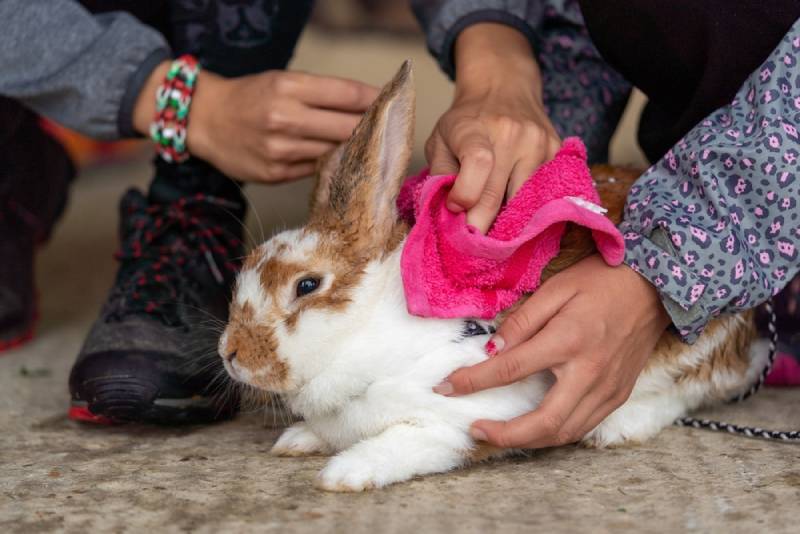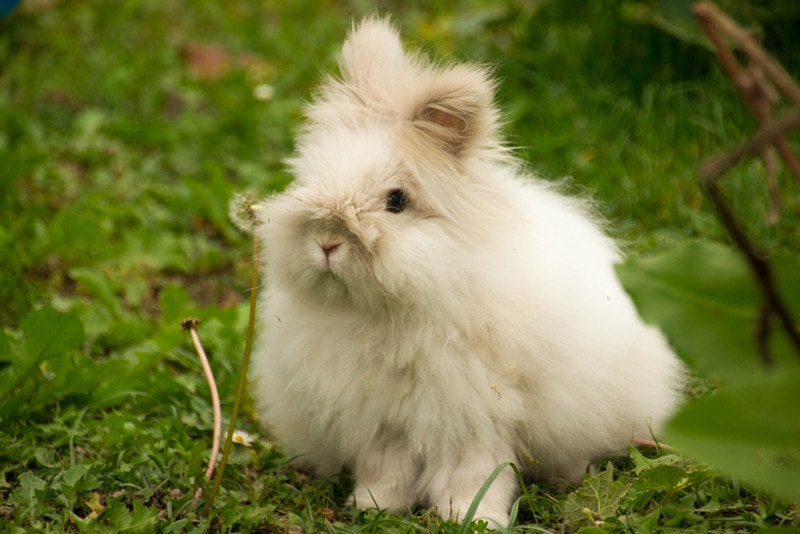How To Get Rabbit Pee Out of a Wood Floor: Expert Tips & Tricks

Updated on
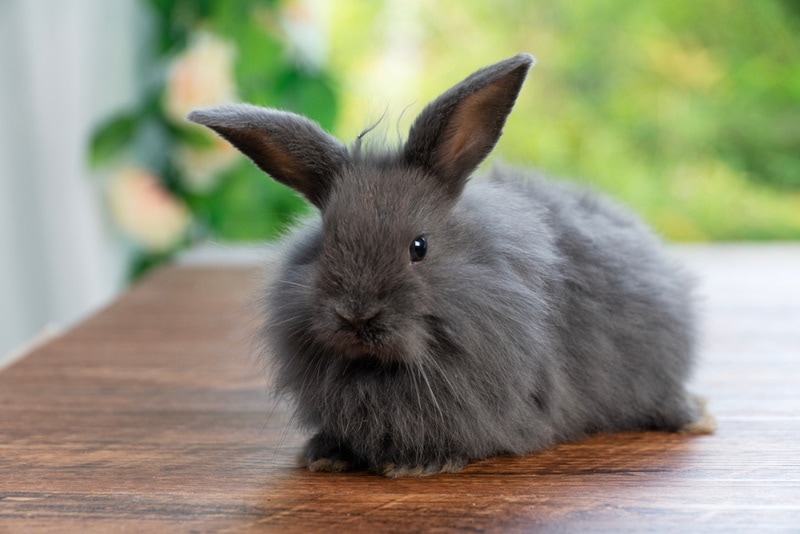
Rabbits are cuddly, cute, affectionate, and, surprisingly, are as smart as dogs and cats. Many rabbits will recognize you as their owner and come to you when they see you. For these reasons and more, bunnies make great pets.
One drawback to owning a rabbit, however, is their urine, which is potent. Also, if they pee on your wood floor, it can leave an awful stain that can cause the floor to rot. To prevent the smell and damage their urine can cause, we’ll discuss five expert tips on removing rabbit urine from a wood floor.
Click on the tips you would like to review first:
The 5 Expert Tips & Tricks to Get Rabbit Pee Out of a Wood Floor
1. Use Hydrogen Peroxide to Clean Up Rabbit Pee
Most Americans have the ubiquitous bottle of hydrogen peroxide in their bathroom cupboard. Since hydrogen peroxide is an oxidizer, it neutralizes salt and kills bacteria, which are two ingredients in rabbit urine that cause it to smell so foul and ruin wood. Once the salt and bacteria are eliminated, all you need to do is let the area dry naturally, and it should return to normal.
Experts recommend using 3% hydrogen peroxide and mixing it with water. More precisely, 3 tablespoons of each should be more than enough to take care of your most rabbit messes. Wash thoroughly with a damp cloth and let the area dry thoroughly.
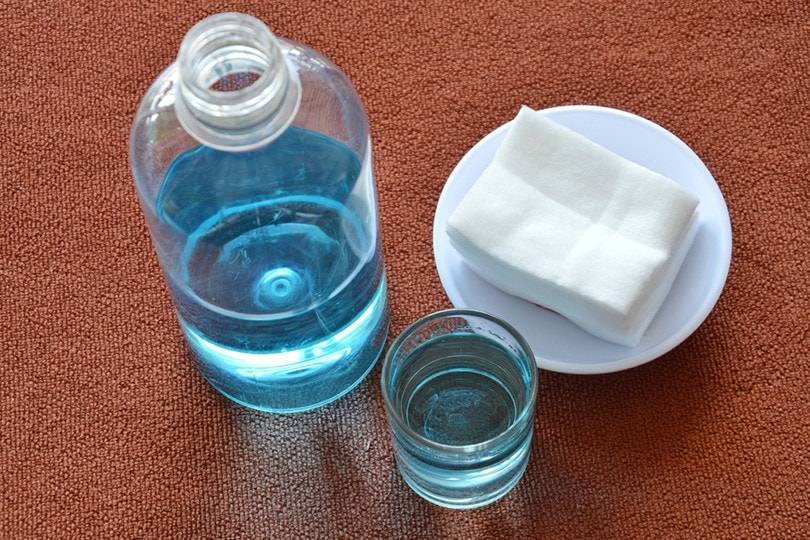
2. Don’t Trust a Rug or Mat to Prevent Wood Floor Damage (Put Down Plastic!)
This isn’t a tip to remove pee from a wood floor, per se, but it is an excellent way to prevent it from happening. Many new rabbit owners make the mistake of placing their rabbit’s hutch on top of a small rug or mat directly on a wooden floor. Although this setup might protect your wood floors for a short time, if rabbit urine is constantly soaking through and getting onto the floor beneath, it will eventually cause major damage.
A better choice would be to place a heavy-duty plastic liner between the floor and the carpet. It’s also recommended to purchase a hutch with a waterproof bottom to prevent urine from leaking through.
3. Mix White Vinegar and Baking Soda Together
White vinegar and baking soda make a powerful cleaner for rabbit urine on wood floors. Just as hydrogen peroxide kills germs and oxidizes salt, white vinegar breaks down uric acid and eliminates the smell of ammonia. By eliminating uric acid, your wood floor will be protected, and the baking soda will take care of the ammonia smell.
To use baking soda and white vinegar to get rabbit pee out of a wood floor, mix ½ cup of white vinegar with ½ cup of water. Then, using a damp cloth, wipe the urine away and rinse. Next, wipe the area well with the solution, letting it dry for about 10 minutes. Wipe any remaining solution with a paper towel, and sprinkle baking soda on the area. Lastly, in 2 to 3 hours, wipe or vacuum the baking soda away. If the area still has any residual smell, repeat the process.
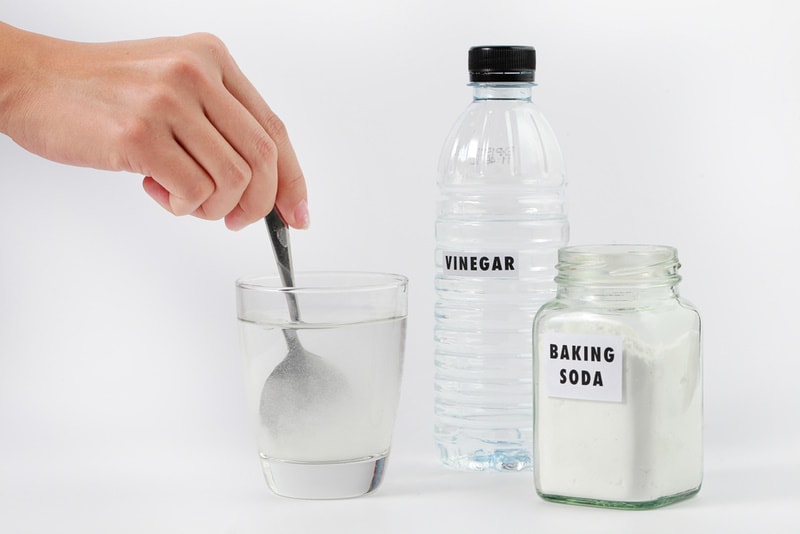
4. Get a Store-Bought, Enzymatic Cleaner
Enzymatic cleaners are relatively new on the market and use bacteria to break down organic compounds and waste in the urine. This eliminates any problems the organic compounds cause, like foul odors and wood rot. If you have gorgeous wood floors and love your bunny, keep a large bottle of enzymatic spray on hand.
5. Use Grapefruit Oil to Eliminate Urine Odors
You can put three or four drops of grapefruit oil on a damp cloth and rub it over the cleaned area where your rabbit peed. Grapefruit oil, like most citrus fruits, has a pleasant smell that covers and eliminates odors.

Tips for Reducing Rabbit Urine Issues and Protecting Your Wood Floors
If you keep your rabbit inside your home and have wood floors, there are several things you can easily do to prevent the problems that urine causes.
1. Potty Train Your Rabbit
Rabbits are as smart as dogs and cats and can easily be potty trained. They might not always make it to the litter box, but a potty-trained rabbit is unlikely to ruin your wood floor.
2. Place a Heavy-Duty Plastic Liner Under Your Rabbit’s Pen
A new shower curtain works like a dream and will prevent urine, water, and other liquids from penetrating through to the wood floors underneath. Some rabbit owners place a larger plastic lining under the entire area they’ve cordoned off for their rabbits.

3. Use Several Litter Boxes
Rabbits have a habit of going potty in the same spots repeatedly. If you have the money and don’t mind the extra space they take up, place more than one litter box in the hutch. It’s still recommended, however, to place plastic underneath them to prevent wood damage if your rabbit misses the mark.
4. Use Several Pee Pads
You can find pee pads normally used for puppies at your local pet store that you can place under the hutch. The only drawback is the cost of constantly replacing the pads.
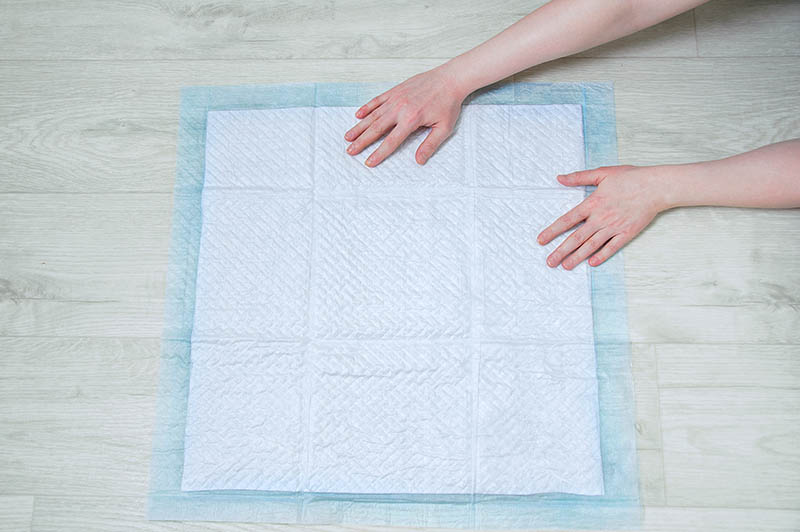
5. Spay or Neuter Your Rabbit
Fully intact male and female rabbits spray urine to mark their territory. Spaying and neutering usually eliminate this problem or reduce it significantly. Also, a spayed or neutered rabbit typically lives longer, which is a great reason to have the procedure performed.
6. Keep Your Rabbit Outside
One of the best ways to prevent damage to your wood floors from rabbit urine is to keep your rabbits outside instead of inside. Rabbits enjoy and thrive in lower temperatures, between 60 and 65 degrees Fahrenheit. Depending on where you live, most rabbits will be happier outside. If it freezes in winter where you live, however, a warm, insulated shed or garage will be necessary for your bunny.
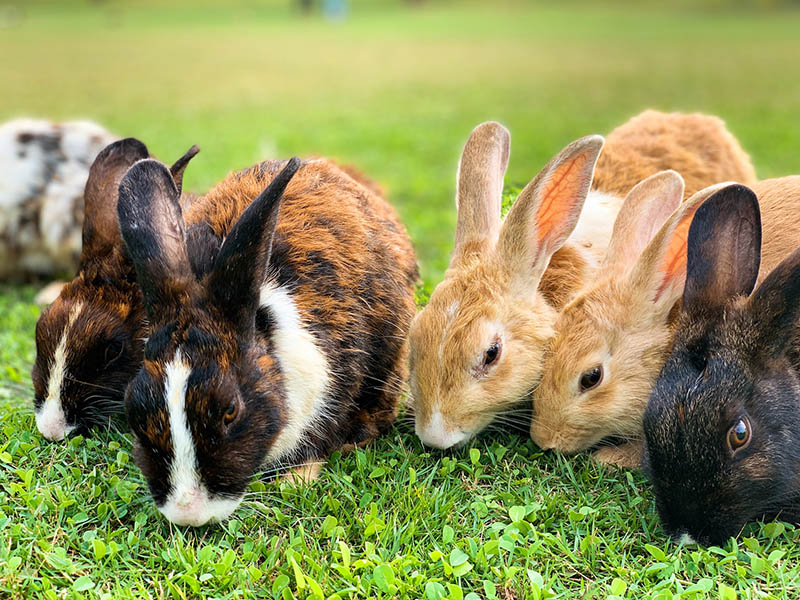
Why Does Rabbit Urine Ruin Wood Floors?
Like most animal urine, rabbit urine can smell quite bad, but theirs seems to be one of the worst. The reason is the high ammonia concentration in rabbit urine. The ammonia eats away at the varnish that usually covers wood floors and exposes them to moisture, bacteria, and more. If left untreated or improperly treated, the ammonia, salt, urea, and other organic compounds in rabbit urine can damage the wood severely. That’s why removing rabbit urine quickly, or preventing it from ever reaching your wood floors, is essential.
Final Thoughts
Because of the high ammonia content in rabbit urine, it can damage wood floors and emit a potent odor. Hopefully, our tips on how to get rabbit urine out of a wood floor have given you the actionable info to protect your floors while also taking good care of your bunny.
However, if you set up your pet’s hutch so that your rabbit’s urine and wood floors never meet, you’ll have solved all the problems before they can even start.
See also:
- Why Do Great Danes Bury Their Heads? Dog Behavior Explained
- 12 Doberman Pros & Cons You Should Know About
Featured Image Credit: Kaewmanee-jiangsihui-Shutterstock


